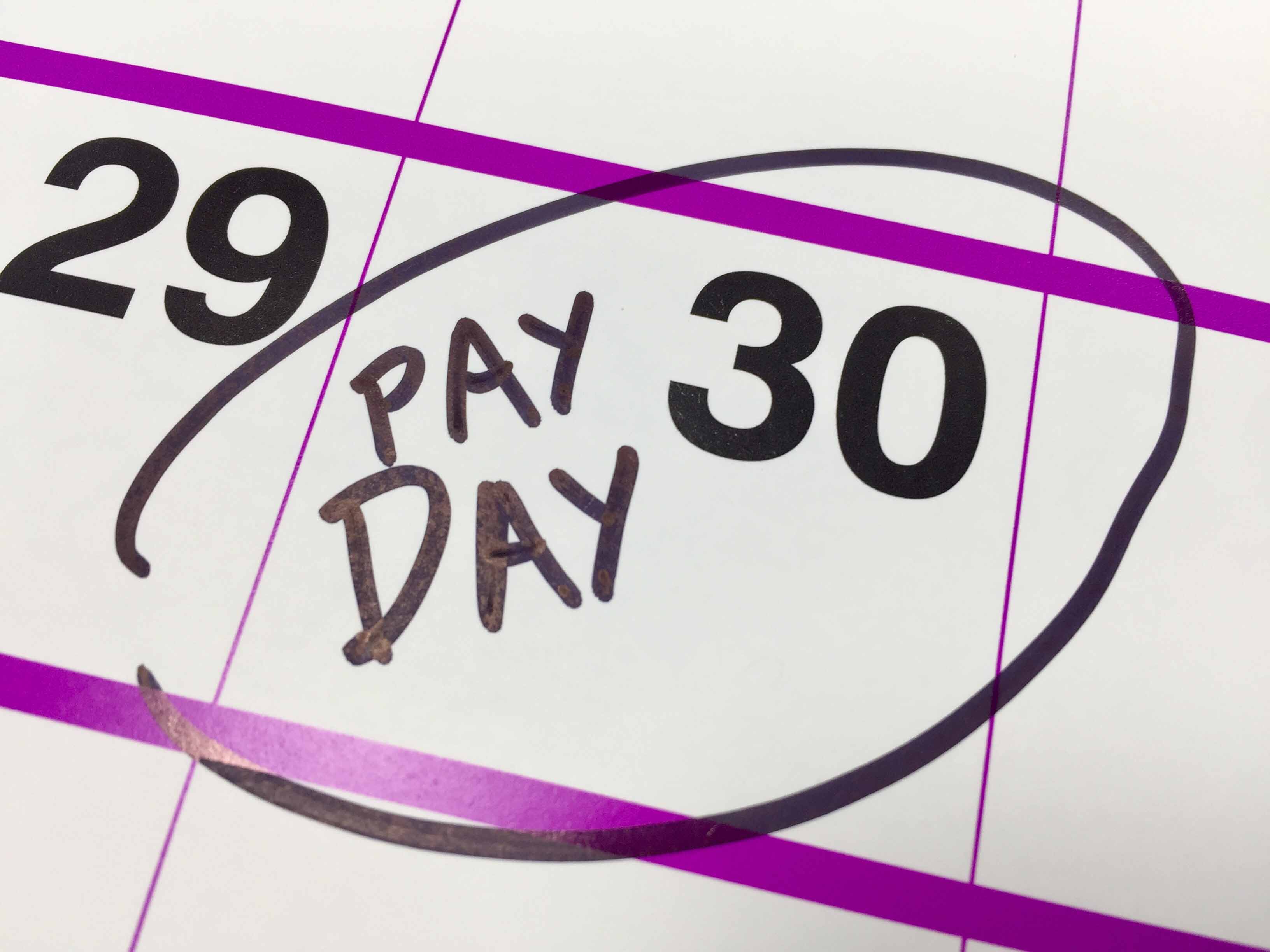What Happens to Your HSA if You're Laid Off
The money in a health savings account remains yours even after you lose or leave your job.

Profit and prosper with the best of Kiplinger's advice on investing, taxes, retirement, personal finance and much more. Delivered daily. Enter your email in the box and click Sign Me Up.
You are now subscribed
Your newsletter sign-up was successful
Want to add more newsletters?

Delivered daily
Kiplinger Today
Profit and prosper with the best of Kiplinger's advice on investing, taxes, retirement, personal finance and much more delivered daily. Smart money moves start here.

Sent five days a week
Kiplinger A Step Ahead
Get practical help to make better financial decisions in your everyday life, from spending to savings on top deals.

Delivered daily
Kiplinger Closing Bell
Get today's biggest financial and investing headlines delivered to your inbox every day the U.S. stock market is open.

Sent twice a week
Kiplinger Adviser Intel
Financial pros across the country share best practices and fresh tactics to preserve and grow your wealth.

Delivered weekly
Kiplinger Tax Tips
Trim your federal and state tax bills with practical tax-planning and tax-cutting strategies.

Sent twice a week
Kiplinger Retirement Tips
Your twice-a-week guide to planning and enjoying a financially secure and richly rewarding retirement

Sent bimonthly.
Kiplinger Adviser Angle
Insights for advisers, wealth managers and other financial professionals.

Sent twice a week
Kiplinger Investing Weekly
Your twice-a-week roundup of promising stocks, funds, companies and industries you should consider, ones you should avoid, and why.

Sent weekly for six weeks
Kiplinger Invest for Retirement
Your step-by-step six-part series on how to invest for retirement, from devising a successful strategy to exactly which investments to choose.
I read your column about what happens to your flexible spending account when you're laid off. I don't have an FSA, but I do have a health savings account. What happens to the money in it if I lose my job?
There's good news for people with health savings accounts: Unlike funds in your flexible spending account, the money in your HSA remains yours even after you lose or leave your job. So you don't need to rush to the eye doctor or dentist to drain the account before your job is terminated.
| Row 0 - Cell 0 | Health Savings Account Answers |
| Row 1 - Cell 0 | Stay Covered After a Layoff |
You can usually keep that money in your former employer's HSA, or you can roll it over to another HSA administrator without having to pay taxes on the move -- a lot like an IRA rollover. But ask first about any transfer fees, says Roy Ramthun, president of HSA Consulting Services, in Silver Spring, Md. The money can then continue to grow in the account and can be used tax-free for future medical expenses in any year -- even if you no longer have a high-deductible health-insurance policy.
From just $107.88 $24.99 for Kiplinger Personal Finance
Become a smarter, better informed investor. Subscribe from just $107.88 $24.99, plus get up to 4 Special Issues

Sign up for Kiplinger’s Free Newsletters
Profit and prosper with the best of expert advice on investing, taxes, retirement, personal finance and more - straight to your e-mail.
Profit and prosper with the best of expert advice - straight to your e-mail.
But you must have a high-deductible health-insurance policy to make new contributions -- whether you continue your former employer's plan through COBRA or you purchase your own high-deductible policy after you leave your job. A high-deductible policy is a good option if you've been laid off because it can help keep your premiums low. If you get another job without a high-deductible policy, you won't be eligible to make new contributions to the HSA.
You can make HSA contributions at any time during the year, and you have until April 15, 2010, to make your 2009 HSA contributions (and remove any excess contributions). The money you put into an HSA is tax-deductible and grows tax-free for future medical expenses.
The maximum HSA contribution you can make is generally based on the number of months you had an eligible high-deductible health-insurance policy. The maximum HSA contribution for 2009 is $3,000 if you have self-only coverage or up to $5,950 for family coverage (if you're 55 or older, you can contribute an extra $1,000). But you can contribute only half those amounts if you had an eligible high-deductible policy for just six months. (There are special rules, however, if you have a high-deductible policy on December 1 -- see A Tax Hat Trick for Health Accounts for details).
For more information about HSA eligibility, see Health Savings Account Answers. The U.S. Treasury Department also has HSA information.
HSA money usually can't be used to pay for health-insurance premiums, but there's an exception for people who lose their jobs: You can use the HSA money for health-insurance premiums (whether for COBRA coverage or any other health insurance) if you're receiving unemployment compensation, says Ramthun. That can be a way to pay your premiums with tax-deductible money. (HSA contributions are usually pretax when made through your employer's plan but are tax-deductible when you contribute to the account on your own.)
For more information about health insurance after losing your job, see Stay Covered After a Layoff.
Profit and prosper with the best of Kiplinger's advice on investing, taxes, retirement, personal finance and much more. Delivered daily. Enter your email in the box and click Sign Me Up.

As the "Ask Kim" columnist for Kiplinger's Personal Finance, Lankford receives hundreds of personal finance questions from readers every month. She is the author of Rescue Your Financial Life (McGraw-Hill, 2003), The Insurance Maze: How You Can Save Money on Insurance -- and Still Get the Coverage You Need (Kaplan, 2006), Kiplinger's Ask Kim for Money Smart Solutions (Kaplan, 2007) and The Kiplinger/BBB Personal Finance Guide for Military Families. She is frequently featured as a financial expert on television and radio, including NBC's Today Show, CNN, CNBC and National Public Radio.
-
 Dow Adds 1,206 Points to Top 50,000: Stock Market Today
Dow Adds 1,206 Points to Top 50,000: Stock Market TodayThe S&P 500 and Nasdaq also had strong finishes to a volatile week, with beaten-down tech stocks outperforming.
-
 Ask the Tax Editor: Federal Income Tax Deductions
Ask the Tax Editor: Federal Income Tax DeductionsAsk the Editor In this week's Ask the Editor Q&A, Joy Taylor answers questions on federal income tax deductions
-
 States With No-Fault Car Insurance Laws (and How No-Fault Car Insurance Works)
States With No-Fault Car Insurance Laws (and How No-Fault Car Insurance Works)A breakdown of the confusing rules around no-fault car insurance in every state where it exists.
-
 You May Get a Raise in 2022
You May Get a Raise in 2022Employee Benefits In a strengthening labor market, businesses are paying more to attract and retain employees.
-
 Before You Sign Up for Health Insurance at Work, Read This
Before You Sign Up for Health Insurance at Work, Read ThisEmployee Benefits It’s open enrollment time at workplaces across the country – for health insurance as well as a bevy of other benefits. Here are four tips to help navigate the maze of benefit decisions.
-
 Open Enrollment Brings New Employee Perks (for a Price)
Open Enrollment Brings New Employee Perks (for a Price)Employee Benefits The pandemic and an increasingly diverse workforce have led to more benefits options for workers.
-
 Can Your Boss Make You Go Back to Work?
Can Your Boss Make You Go Back to Work?Coronavirus and Your Money Even if you don’t have legal protections, you may be able to negotiate with your boss.
-
 This Olympian Tackles the Wealth Gap
This Olympian Tackles the Wealth GapFinancial Planning She encourages advisers to introduce students to financial planning.
-
 Seasonal Hirings to Hit a Record High
Seasonal Hirings to Hit a Record Highbusiness If you want to earn some extra cash for the holidays, you’ll have a better chance than ever of landing a temporary job as retailers and delivery companies announce a record number of seasonal hires.
-
 Paying IRA Investment Management Fees
Paying IRA Investment Management Feesmanagement New tax law brings big changes. But there are workarounds.
-
 How Much Are Those Old Baseball Cards Worth?
How Much Are Those Old Baseball Cards Worth?business Depending on the year, condition and, of course, the player, some baseball cards could be worth thousands of dollars.